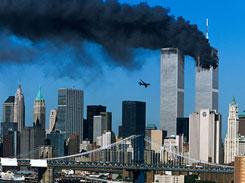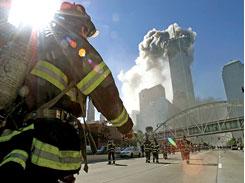C-TPAT
Customs Trade Partnership Against Terrorism
(C-TPAT)

As a result of 9/11, the United States has alerted about terrorism in various forms as well as covert operations in all types of cargo into the country therefore the Customs Trade Partnership Against Terrorism program was launched in order to secure the global supply chain from terrorism in November 2001.



Benefits for Adopting C-TPAT Standards
- Reduction in U.S. Customs Inspections
- Containers/trailers will not wait as long in line at a Container Examination Site.
- The company is aware of its weakness in security measures and how to improve.
- Maintain business relationship with an existing customer that cargos are maintained securely according to C-TPAT standards.
Personnel Security
- There is written personnel security guidelines for hiring & termination as well as transferring to another position.
- Conducting pre-employment screening on prospective employees, as well as periodic background checks once employed; Criminal records, Employment history, References, Drug screening etc.
- Updated background checks are conducted.
- Identification is required for personnel; Badge, Uniform etc.
- All employees are required to wear identification badges and return when leaving the company.
- In case of losing or damaged badge, employees have to immediately report to HR personnel for issuing a new one.
- Reporting to authorized personnel (security personnel, supervisors or HR) for Internal conspiracies, suspicious/illegal activity, detecting unlawful, challenging unauthorized access and unidentified/unauthorized person.
Physical Security
- Buildings are constructed with appropriate materials and design which ensure reasonable security and un-lawful access. (No hole, crack line, open areas through floors and roof).
- Locking devices are available for doors and windows.
- Perimeter barrier (fence, wall) and gates are provided sufficient security and properly maintained and repaired.
- Sufficient lighting for outside, controlled/sensitive areas (finished goods warehouse, packing, loading, stored container, entrance, entire perimeter, parking lots, IT room etc.)
- CCTV/ Electronic alarm (Burglar alarm) is installed.
- Culverts, Utility tunnels, Sewers are secured to prevent unauthorized access.
- Reporting to authorized personnel (security personnel, supervisors or HR) for recognizing and detecting dangerous substances and devices and compromised security infrastructure (broken locks, wall, windows, etc.)
Physical Access Control
- Screen arriving packages and mail prior to distribution.
- Entry without badge, must record and receive a temporary badge at security guard house prior to entering the premise.
- Employee access is limited to the relevant areas of responsibility and is not allowed to access to controlled/sensitive areas (raw material, packing, loading and finished goods warehouse)
- Separate parking lots for employees, visitors and delivery drivers.
- Identification sticker must be present on all employees’ vehicles.
- Exit the site during working hours must be approved by supervisors. Also, employees must submit an approval exit pass to a security officer before leaving.
- Provide a cooperation for inspecting personal belongings and vehicles every in-out.
- In cases where company goods are brought out of the premises, employees must submit the approval pass with authority signature to a security officer.
- Employees are allowed to meet relatives or outsider at the security guard house only.
Information Technology Security
- Documents are not in use must be stored in a secure cabinet.
- Documents on the desk must be covered completely to prevent information leakage.
- Unauthorized person is not allowed to come in the department.
- In case information is requested by unauthorized person, employees are strictly prohibited to disclose those information as well as computer password and immediately report to supervisors
Procedural Security – Production
- Employees must not bring illegal substances/devices into premise. In case of discovering of those contraband, the company will notify to the local authority (police) for proceeding.
- Employees must not bring personal belongings into production buildings. Those belongings must be stored in a provided locker.
- Where anomalies, tamper of goods and shortages and overages are detected in production, assembly and packing processes, employees must immediately notify to supervisors.
Procedural Security – Container/Trailer/Seal Security
- There are procedures for detecting and reporting shortages and overages, anomalies, and tampering of goods and dangerous substances and devices.
- 7 points inspection, Trailer and seal security
- Loading and departure of containers is supervised by a security officer or other designated supervisor.
- There are procedures for affixing, replacing, recording, and tracking the seals placed on containers and trucks as well as broken/damaged seal.
- Seals meet or exceed the current ISO PAS 17712 standards for high security seals.
Security Reporting
Where above anomalies and contraband are detected in premises or production processes, employees must notify:
- Security personnel;
- HR personnel;
- Supervisor
Notify verbally or by phone and provide information to such authorities as evidence for further action. The company will consider the severity of the event to notify the local law enforcement (police, customs) case by case.



